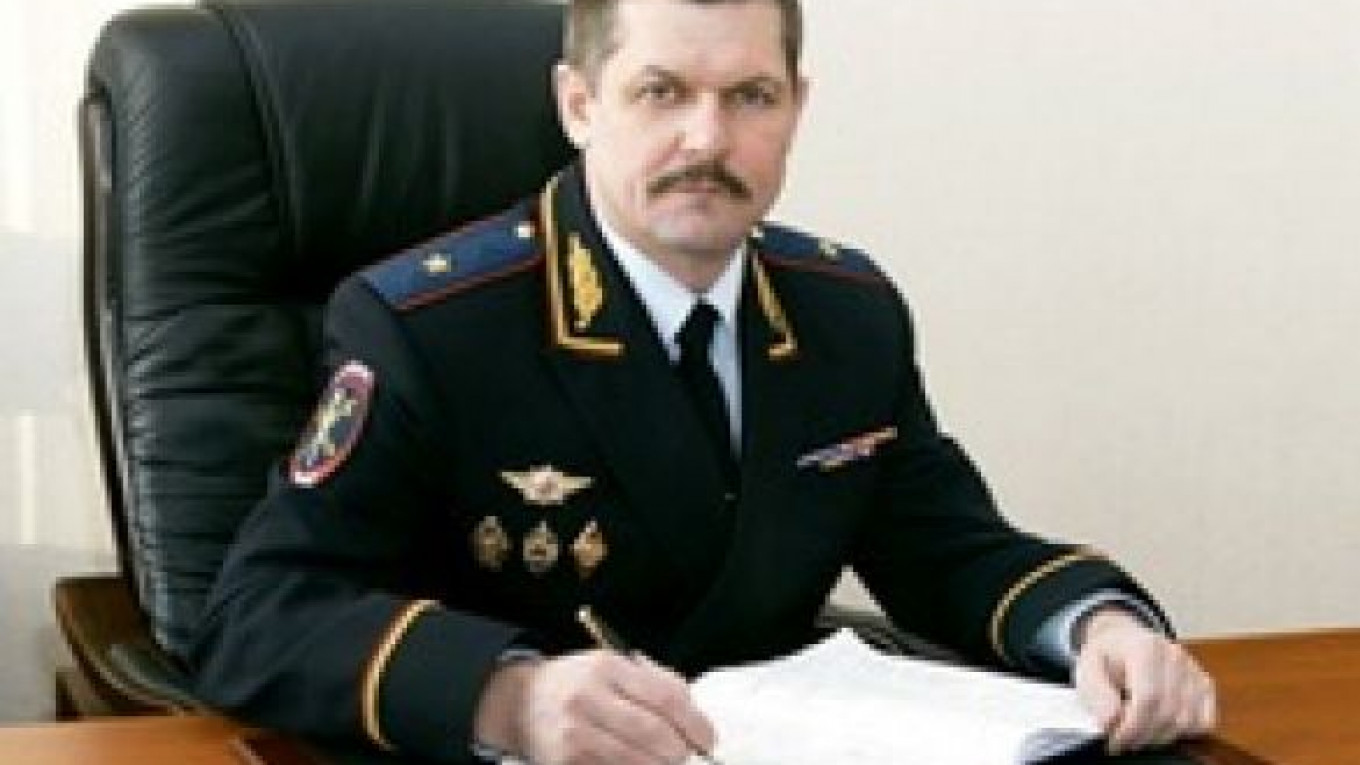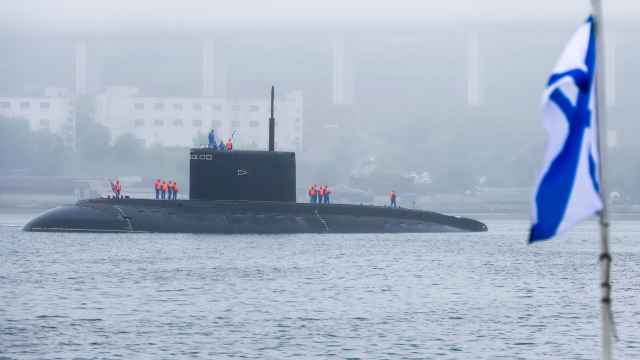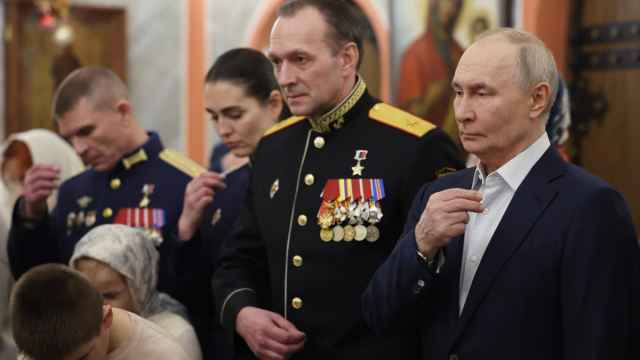Anatoly Yakunin, an ally of the new interior minister who has spent much of his career combating organized crime, was appointed Moscow's police chief over the weekend.
The job is considered the nation's second-most-important police role, following the interior minister, and Yakunin will quickly face a test from the political opposition, which is planning a mass protest June 12.
President Vladimir Putin on Saturday appointed Major-General Yakunin, 48, to fill the position vacated last month when Vladimir Kolokoltsev was promoted to interior minister, the Kremlin said in a brief statement. Yakunin was the Novgorod region's police chief.
Yakunin worked as a deputy to Lieutenant-General Kolokoltsev in 2008 in his native Oryol region. Later he became first deputy to the Voronezh region's chief, and he took the reins in the Novgorod region in 2010.
Yakunin has served in anti-organized-crime departments for much of his career.
"In recent years under his leadership, the activity of a number of organized criminal groups was suppressed, and severe and especially severe high-profile corruption-related crimes were solved,” the Moscow police press service said in a statement.
Yakunin made no immediate public comment about his appointment, but any hopes among Moscow residents for deep changes within the 100,000-member police force could be tempered by remarks he made to a Novgorod television station in May 2011. Referring to the Kremlin’s efforts to reform the country’s notoriously corrupt police force, Yakunin said it would take two or three years before "police reform would be achieved de facto."
Yakunin is held in high esteem by some acquaintances. Vasily Ikonnikov, head of the Oryol branch of the Communist Party and a former deputy head of the local administration, described him as an "uncompromising professional" who knows "the daily work of police."
According to income declarations submitted by the heads of regional police departments for the past year, Yakunin reported the lowest annual income: 981,000 rubles ($29,000).
But opposition leaders had mixed feelings about the appointment.
Left Front head Sergei Udaltsov said Yakunin, as someone invited to work in the capital from the regional level, would feel "obliged to fulfill orders from the federal level," according to remarks on Russian News Service radio.
Activist Natalya Pelevina said she was not expecting any changes when it came to opposition rallies. "He is a man of the system, and we know that decisions [regarding protests] are made on a different level," she said, referring to the Kremlin.
Opposition leaders are currently in talks with City Hall to sanction a 50,000-person rally on the Russia Day holiday on June 12.
That rally could be the first public test for Yakunin as police chief. The last mass rally, on May 6, which was held to protest Putin's inauguration as president, ended in violence and hundreds of arrests.
Three activists have been formally charged with assaulting police officers at that rally. Several OMON officers who were injured during the protest were given apartments in Moscow.
When a Moscow Times reporter asked a policeman standing guard near the Noviye Cheryomushki metro station what he thought of Yakunin’s appointment, the officer smiled and nodded positively. "I heard that he worked with Kolokoltsev," he said.
The Interior Ministry is expected to see more reshuffling as Kolokoltsev, who removed three deputies to his predecessor, Rashid Nurgaliyev, plans to appoint new ones in the near future, a ministry official told The Moscow Times on condition of anonymity, saying he was not authorized to talk to the media.
A Message from The Moscow Times:
Dear readers,
We are facing unprecedented challenges. Russia's Prosecutor General's Office has designated The Moscow Times as an "undesirable" organization, criminalizing our work and putting our staff at risk of prosecution. This follows our earlier unjust labeling as a "foreign agent."
These actions are direct attempts to silence independent journalism in Russia. The authorities claim our work "discredits the decisions of the Russian leadership." We see things differently: we strive to provide accurate, unbiased reporting on Russia.
We, the journalists of The Moscow Times, refuse to be silenced. But to continue our work, we need your help.
Your support, no matter how small, makes a world of difference. If you can, please support us monthly starting from just $2. It's quick to set up, and every contribution makes a significant impact.
By supporting The Moscow Times, you're defending open, independent journalism in the face of repression. Thank you for standing with us.
Remind me later.






